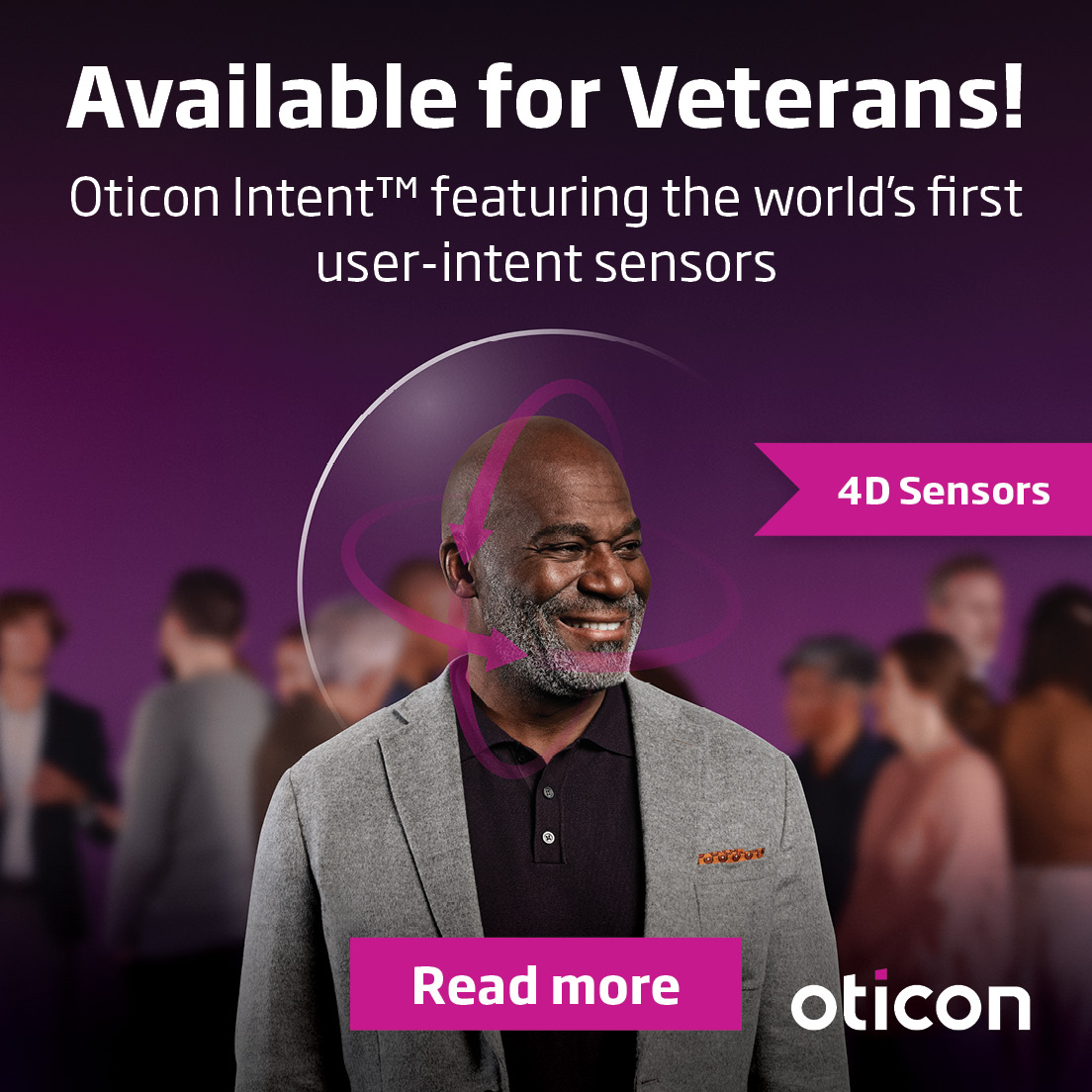|
www.HealthyHearing.com |
All about teleaudiology and mobile hearing clinicsTechnology makes remote hearing care easier than ever
Contributed by Emily Ostrowski, content manager, Healthy Hearing Key points:
What is teleaudiology?Teleaudiology is a healthcare service that lets people access audiologists remotely from their homes via technology like video conferencing. While it's prevalence grew during COVID-19, some clinics were offering services before the pandemic and continue to do so after. What about mobile audiology clinics?A mobile audiology clinic is a specialized vehicle equipped to provide on-site hearing healthcare services like hearing tests and hearing aid fittings. 
loss to receive care remotely. They tend to pop up at workplaces, schools and rural locations making it easier for people who don't live close to an audiology practice to receive care. More: This Atlanta-area 'tiny house' is actually a mobile hearing clinic Who benefits from remote audiology?Though anyone can benefit from access to telehealth or mobile clinics, it can be especially beneficial to certain populations, including: Rural populationsPeople living in more rural or remote areas don't have the same amount of access to healthcare as people living in more heavily populated areas, and that includes audiological care. A 2019 analysis found that more than half of all counties in the United States don't have an audiologist. A separate study published in early 2024 also found that people in rural populations tend to have higher rates of hearing loss, so they are particularly in need of better access to hearing healthcare. Patients with limited mobilityTelehealth audiology can also be a helpful option for patients with mobility issues, such as older adults with hearing loss who are home bound or in a nursing home. New hearing aid users often need multiple appointments as they get fitted and adjust to their devices. An older patient experiencing cognitive issues may need more appointments than average. However, caregivers may not have the time to bring patients in for multiple fine-tuning visits. Because nursing homes don’t tend to have on-site audiologists, it's the caregivers who have to bring patients back and forth to appointments. Additionally, the trip itself could be stressful for someone with a disability. VeteransVeterans are disproportionally affected by both hearing loss and tinnitus. Additionally, the U.S. Veterans Health Administration found that more than one-third of the veterans they serve live in rural areas. 
telehealth technology. Photo courtesy U.S. Veterans Affairs The Department of Veterans Affairs (VA) has embraced the use of mobile medical units to provide a variety of services, including audiological exams. Teleaudiology improves 'continuity of care'The benefits of teleaudiology are clear for people who have difficulty accessing an audiologist's office due to location, illness, disability, work or other issues. Some people also might feel more relaxed being able to have an appointment in the comfort of their own home. Not only can telehealth reduce travel time, but it can also eliminate the costs of travel, including taking time off of work. This makes it more affordable and accessible for patients to attend both initial and follow-up appointments. "My favorite aspect is the enhanced continuity of care," said Jon Marquis, hearing instrument specialist (HIS) at Southern Maine Hearing. "Teleaudiology facilitates ongoing communication between patients and providers, ensuring consistent follow-up and support." Marquis first started providing teleheaudiology services during the pandemic and has since has come to appreciate the benefits remote visits have for both patients and clinics. "I find that patients really appreciate the convenience, safety and access of remote care," said Marquis. "Teleaudiology not only empowers the patient, but the flexibility of the program also allows for the clinic to cut down on no-shows and delayed appointments." Some audiology services require in-person care
Dr. Gary Fike, Jr, Au.D and owner of Palmetto Family Hearing Center in Ft. Mills, SC started offering remote hearing aid programming services at the end of 2019, which made it easier to transition to offering more telehealth options during the pandemic. Since then, he's continued to offer telehealth appointments for quick programming adjustments, as well as for those patients that have trouble getting into the office because of work, location, and for those that move or are traveling. "Overall, I have more tools at my disposal when the patient is in person, but virtual is a nice option for basic issues," said Dr. Fike. "It's definitely something that can differentiate a practice, and when convenient for the patient, it can be very useful." Both Dr. Fike and Marquis say in-person visits are still essential for certain issues such as initial hearing aid fittings, ear exams and feedback tests. Continued outreach is needed for patients with limited mobilityWith the need for in-person visits still a reality, both providers expressed support for mobile and satellite clinics. Marquis noted that multiple times he's had conversations with patients where they hadn't been wearing their hearing aids as much since the last visit because their devices weren't working properly. In many cases, the problem was a simple fix, but the patient had trouble finding a way to get to an appointment. "Patients note they were unable to get a ride to the office, or that they had other appointments that they needed to attend," said Marquis. "Having clinics more accessible to patients leads to more communication, which leads to better patient support." While Dr. Fike works near a larger city with plenty of in-person availability, he's made extra efforts to ensure that patients with mobility issues can receive treatment, including traveling to their homes to provide care. How to ensure your telehearing appointment goes wellThere are several things you can do to help get the most from your teleheath visit:
Additionally, Dr. Fike recommends that patients make sure their hearing aids are working to the best of their ability by cleaning them and changing the wax filter if needed prior to the appointment. Programming hearing aids via your phoneOne of the more common uses of teleaudiology is programming hearing aids remotely. A hearing care provider can program a person's hearing aids via an app, which means a patient doesn't have to come in for an appointment if they need their hearing aid settings customized, adjusted or changed. If you're unsure whether or not your hearing aids can be programmed this way, reach out to your provider for clarification. States that allow teleaudiologyMost states allow licensed audiologists to implement teleaudiology and a few states also allow hearing instrument specialists (HIS) to do so. Here is a list of states that allow complete services, partial services or very limited services. By clicking the state name, you'll be taken to Healthy Hearing's directory of hearing care professionals in that state, but please note not all of them will offer teleaudiology programs. You'll need to contact your preferred clinic and ask if they offer any remote care. Telehealthcare with complete services (subject to change)Telehealthcare with some restrictionsTelehealthcare with limitations/vague rulesThe importance of expanding hearing healthcare accessibilityHaving access to quality hearing healthcare can significantly impact a person's quality of life. Treating hearing loss makes it possible to connect with loved ones, enjoy social events, listen to music, and appreciate your favorite sounds. It can also benefit your mental, physical and cognitive health. To find help for yourself or a loved one whether in person or via telehealth, check out our full list of hearing healthcare providers in your area. Emily Ostrowski, content manager, Healthy Hearing
|
Featured clinics near me
Hearing Health Solutions from Ohio ENT - Columbus
974 Bethel Rd Ste B
Columbus, OH 43214
Earzlink Hearing Care - Reynoldsburg
7668 Slate Ridge Blvd
Reynoldsburg, OH 43068


Find a clinic
Need a hearing test but not sure which clinic to choose?
Call 1-877-872-7165 for help setting up a hearing test appointment.


 Emily is an experienced journalist and medical content writer based in Maine. Passionate about delivering enlightening and accurate content, she is committed to empowering people to make informed choices regarding their hearing health.
Emily is an experienced journalist and medical content writer based in Maine. Passionate about delivering enlightening and accurate content, she is committed to empowering people to make informed choices regarding their hearing health.